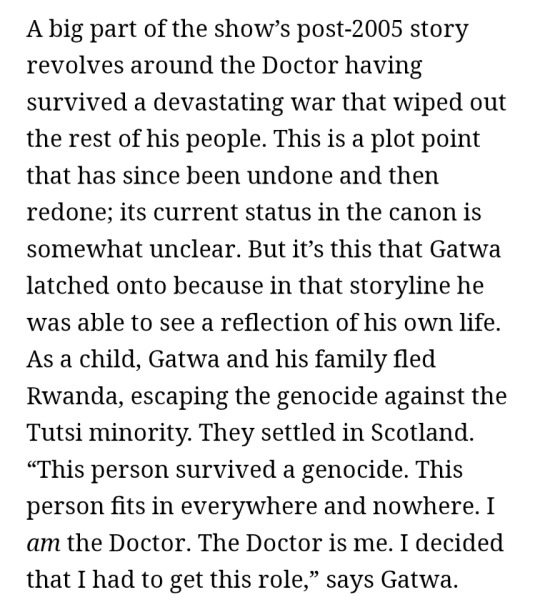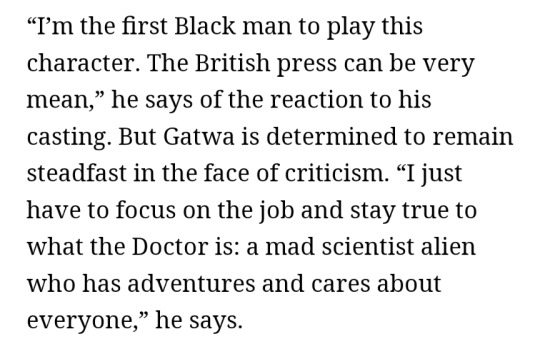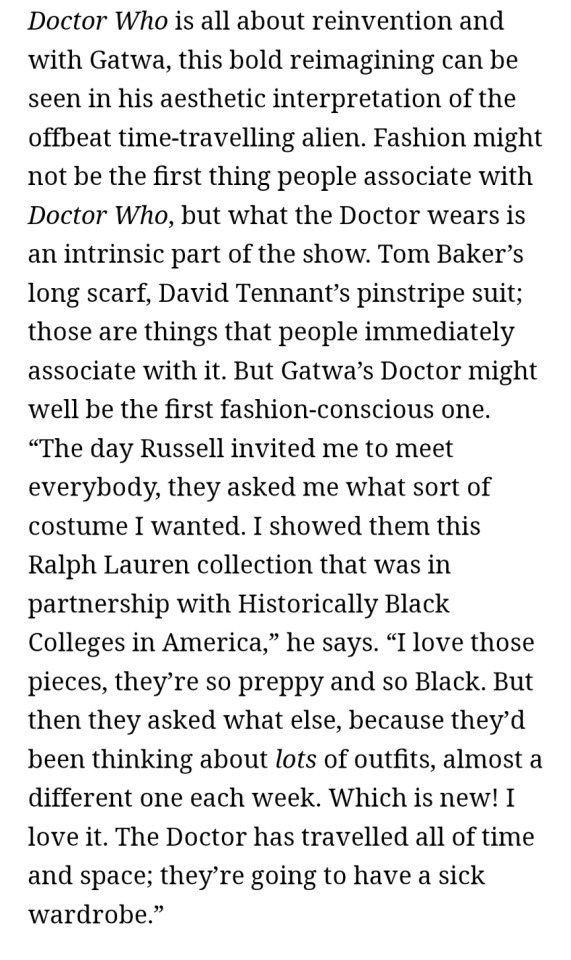Text
Lockwood: *gives lucy a necklace* my dad gave this to my mom as a symbol of his undying love
Lucy: *gives it back* Aw how nice :)
Lockwood: …
thinking about Anthony J. “I am emotionally constipated and I would never make the first move because I am technically your boss, however I would die for you no questions asked, and I will bring you to my parent’s grave and KEEP giving you nice necklaces until you realize that I’m in love with you” Lockwood today.
He is the blueprint
240 notes
·
View notes
Text
I love that it’s literally canon that George would lose it and blow up a building if he lost Lockwood and Lucy
379 notes
·
View notes
Text
Okay I’ve now seen three (3) episodes of Good Omens 2 and all I can say is that Ineffable Husbands is just a humanities major x STEM major pairing in disguise. I mean, Aziraphale needs no explanation, but look at Crowley getting all excited abt space in episode 1. They use “inclusive” to list page numbers for crying out loud you only do that if you’ve been writing proofs.
#he also tries to explain gravity to jim?#spoilers#but only really tiny ones#good omens 2#good omens#aziraphale#Crowley#ineffable husbands#ineffable idiots#why is that a tag#I love it but why#STEM#physics#david tennant#micheal sheen#aziracrow
14 notes
·
View notes
Text
idk i just deeply love that lucy carlyle gets to be incredibly flawed and complex and make mistakes and then grow and learn and apologise for her actions? and form these beautiful strong relationships with other characters, and develop her skills, and become more confident in herself? like that's character development
150 notes
·
View notes
Text
Lockwood reread commentary pt. 2:
Now that I’m closer to Kipps’ age than Lucy’s, I find the idea of him at 20-22ish having to babysit manage a team of roughly 15-17 year olds kind of hilarious. He’s really just a young adult trying to figure out his life and then there’s this team of grimy children pulling insane stunts and roasting him at every turn. But at the same time he’s the closest thing to an adult they’ll trust and they’re also his only friends so he has to stick around and try to keep them alive.
Lockwood & co: *does something outrageously illegal*
Quill Kipps, old enough to have a consciousness: this is fine
#also his rivalry with lockwood???#man held a grudge against a 12 year old#idk I love book!quill#he’s MY harried petty young adult#anthony lockwood#george cubbins#george karim#lockwood and co#lucy carlyle#quill kipps#holly munro#bring back lockwood and co#renew lockwood and co#the hollow boy#the creeping shadow#the empty grave#flo bones
502 notes
·
View notes
Text
Not to be salty on main but the good omens fandom did an incredible job scrubbing spoilers from the internet for well over a month and for what? To start posting stuff without warnings hours after the shows release? Where’s the consistency? The commitment? The compassion for your fellow man?
#it’s my own fault for even opening tumblr tbh#I haven’t seen much just a couple gifs if you catch my drift#good omens#good omens spoilers#ineffable idiots#ineffable husbands#crowley#aziraphale#gabriel#good omens leak#good omens 2
24 notes
·
View notes
Text
doing a reread of the lockwood books and-
Show!Lucy: I am traumatized by the death of my female best friend whom I was best friends with. I know how to do a perfect smokey eye. I never wanted to be an agent and am easily frightened, but I am otherwise Talented and empathetic. I wish I was dead, but not as much as Lockwood. I eat biscuits funny.
Book!Lucy: I hate anything remotely feminine so much. I have Zero female friends for a solid three books. I'm incredibly nosy and need to know everything, all the time, especially if it's about Lockwood. I don't wish I was dead but I wish I could kill. In fact I can, and I have.
Both: Brown women make me extremely jealous and insecure. Chucking things (e.g. swords) is a valid solution to most problems.
#lockwood and co#lockwood netflix#anthony lockwood#lucy carlyle#george cubbins#george karim#locklyle#flo bones#the hollow boy#the creeping shadow#the empty grave#the screaming staircase#holly munro#both lucys are fun in their own way#we never got to see Lucy overcome her hostility to brown women and that's a Crime#it's sad we didn't get to see her character develop in general#but maybe it's a good thing we didn't have to watch her bully holly#bring back lockwood and co#is this too many opinions for a kids book
104 notes
·
View notes
Text
The lockwood and co tag is full of posts about people finishing the show and finding the books to read and I’m just so emotional about that you guys, welcome to the greatest fandom on the internet, we are so glad you’re here but also
These books are so good. Literally the best thing to come out of this Netflix adaptation is that more people know and will know about Lockwood & Co because it really is the best series and it deserves the attention so much.
207 notes
·
View notes
Text
Now that lockwood and co. Is a (popular???) tv show perhaps I should mention that my @ handle both on tumblr and tiktok are based on a quote from the Screaming Staircase—
“I’m being ironic. Or is it sarcastic? I can never remember.”
“Irony’s cleverer, so you’re probably being sarcastic.”
#netflix#lockwood and co#lockwood and co tv show#lucy carlyle#anthony lockwood#george karim#george cubbins#the screaming staircase#the whispering skull#I always knew lockwood had white boy of the month potential#glad to see that becoming reality
109 notes
·
View notes
Text

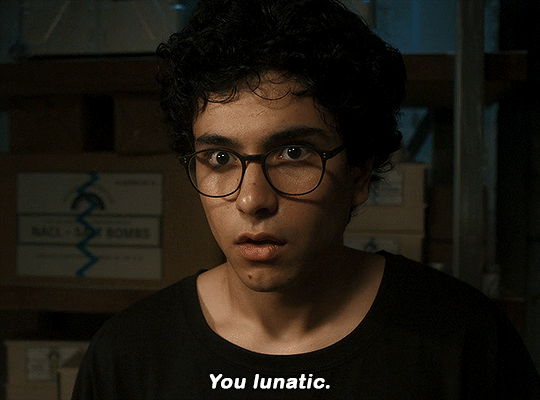
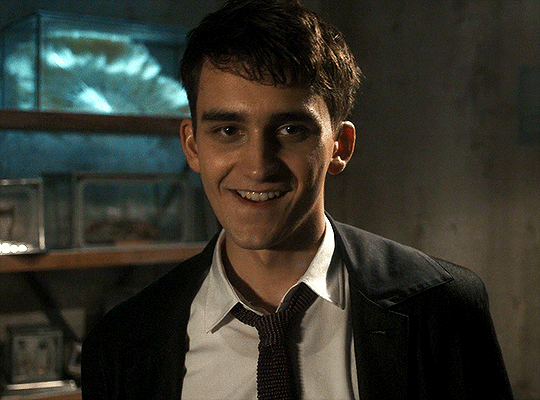
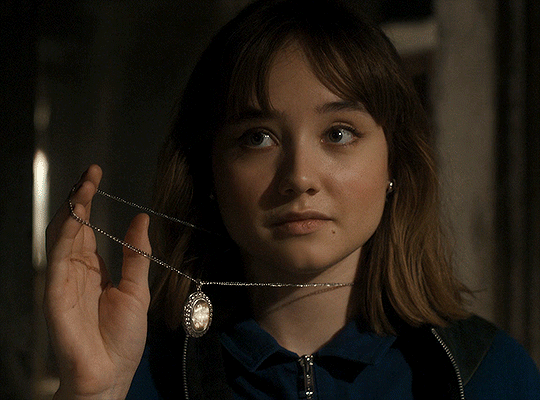
george: LUCY NO
lockwood and lucy: LUCY YES
LOCKWOOD & CO. 1.02
4K notes
·
View notes
Text
to be fair that would be very in-character
Had a dream last night that I was watching Episode 1 of the Lockwood & Co series, but the first 50 minutes was just Lockwood parkouring every where and being an unnecessary action hero.
86 notes
·
View notes
Text
LOKI, Episode 1: Marvel’s Glorious Purpose
Disclaimer: This is both later than I had planned on posting and MUCH longer than I had planned on writing.This opener not only includes my thoughts on the first episode, but an overview of my entire relationship with Marvel, and how that will be coloring my viewing experience. In the future I hope to post each episode’s essay before the next episode comes out.
Opener:
I have consumed a lot of content from the Marvel Cinematic Universe in my time. I have seen all four Avengers movies, all three Captain Americas, two-ish Iron Mans, two Thors, and a smattering of others, totaling at fifteen films. My favorites? Probably Thor: Ragnarok, and Captain America: The Winter Soldier. My least favorites? Definitely Doctor Strange, Age of Ultron, and (unpopular opinion) Guardians of the Galaxy.
But if asked, I would not say I am part of the MCU fandom. I enjoy the movies, but I grow tired of their polish. Though they will sometimes spin compelling narratives and witty dialogue, at the end of the day, fight scenes and explosions always take priority. I find it excessive, and driven by spectacle. I know that that is the whole point of an action movie and I’m not against it, but I’m not invested in it either. The movies fit into a time and place in my life, and do not go far beyond that.
Oddly, I enjoy the online fandom of the MCU more than the films themselves. There was a time when I was an avid Stucky shipper, and read some MCU fanfiction. Social media content on Instagram and Tiktok can also be fun. I enjoy being in the in-group, and getting the references. Plus, the fandom tends to focus on the elements of the MCU that I am attracted to: the humor, world-building, and characters. Fan-made content takes what’s interesting to me about Marvel and improves it, exploring the universe with a depth, breadth, and self-awareness that I think the source materials do not.
I believe that the reason I am more connected to the fandom than the actual films is because the MCU is a corporate creation. The Marvel-Disney conglomerate creates content for the purposes of reaching the largest possible audience and ultimately making money. Economic incentives means that no risks can be taken. Nothing inflammatory in any way can be explored in these films. Everything must be done correctly, and as inoffensively as possible. If there are characters of color, they support the white man, with the exception of Black Panther. The same goes for female characters, with the exception of Captain Marvel (probably, I haven’t seen it). If characters are considered to be queer by actors or fans, it is not portrayed onscreen. The government can be criticized, but only within the acceptable parameters.
The parameters set by Disney are designed to attract a broad audience and avoid offense, but online media makes no efforts to please anyone outside of a small focus group. As a result, online fan culture does not shy away from breaking the rules. It is my perception that many online Marvel fans are young women and queer people, and their content reflects that; the MCU fanon is far more daring and colorful than it could ever be onscreen.
It is with this perspective on Marvel/Disney that I approached Loki, one of the most popular characters in the MCU internet fandom. Loki is the brooding badboy of the MCU, the tortured soul that make fans swoon. He’s a sassy villain but he’s also tormented and misunderstood. Maybe it’s the tropes, or maybe it’s just Tom Hiddleston’s voice, but Loki is a central feature of the MCU fandom.
In short, I am cynical about the intentions of any Marvel media because of its status as a corporate entity. The monetary incentives of a conservative approach mean that I am convinced that the show can never truly satisfy Loki’s core audience. So going into this this first episode I am curious to see how Marvel will choose to market the show. Will they try to attract a larger fanbase, or will they focus on pleasing existing fans? And if they choose the latter, how will they balance the radical desires of fans with Marvel/Disney’s conservative reputation?
Now, onto the actual episode…
As I predicted, this episode was… a lot. In general I thought it was fun, if a bit heavy-handed thematically. I think I have a good idea of what direction it’s heading in. Here are my general comments:
The MCU knowledge required for this show tells me right away that it is intended for fans, and not really to attract newcomers. If anything, I would guess the show is intended to attract existing MCU fans to Disney Plus. While there is some explaining of the canon in the episode, it assumes for the most part that you have already seen the Avengers and Thor movies. The narrower scope indicates that this show will probably be somewhat more creatively/ideologically risky than the usual film standard.
For example, the episode contains clear themes of control and authority versus free will and independent thought. The TVA (Time Variance Authority) is presented as utterly impregnable, existing in a realm where even infinity stones hold no power. They dictate the flow of time, correcting those who deviate from their determined path. In theory, the TVA has complete knowledge and control over people’s choices across all of time and space. Loki, and Mobius to a lesser degree, are presented as counter to this system.
Perhaps in the context of Disney as a massive corporation, being anti-authority may be construed as “edgy.” After all, there is a certain amount of irony in the fact that this TV show was painstakingly crafted to suit Marvel/Disney’s needs, and yet it thematically focuses on being powerless against an oppressive system. But I would argue that the themes in this episode are not edgy at all due to one factor: Race.
The two characters we see acting against the system are white men, whereas the figures upholding the system are notably women and people of color (i.e. the judge, the police officer, and the desk attendant). This is tasteless, in my opinion, but more importantly it does not reflect reality. By making marginalized people the face of power, Disney reduces the danger of placing the main characters in opposition to the system. In other words, if Mobius had been the only Black agent for the TVA, and he chose to work with Loki against a predominantly white power structure, that would be a very different story. It would clearly be a commentary on real-life society, which could garner disapproval from some viewers. But because the reverse is true, portraying Loki and Mobius as rebels is “safe,” and does not damage Marvel/Disney’s reputation in any major way.
Analysis
I chose to analyze the first portion of Mobius’s interview/therapy session with Loki, from 21:00 minutes to 24:45. I chose this scene because covers a lot of important material in a short span of time, both in the dialogue and cinematography. Similar to my earlier reflection, I would say that the camera work in this scene tends to revolve around Loki’s helplessness, and highlights the power dynamic between him, Mobius, and the TVA.
The biggest thing that stood out to me in this scene was the usage of shot length. Much of the scene revolves around dialogue, which means there are a lot of traditional medium-shots of Loki and Mobius’s faces. However, there are also some close-ups and wide shots that correspond interestingly with the lines being spoken. The first lines of dialogue as they enter the room are cautious. Loki does not trust Mobius, and Mobius doesn’t seem to care either way. For much of their initial exchange he is not even looking Loki’s way. To match this dynamic, the shots between the two are medium-shots.
But this changes when Loki says the line, “I live within whatever path I choose.” When he says this, the screen cuts to a wide shot of the room, showing Loki and Mobius from behind. The screen, projector, and orange walls are clearly visible. The physical presence of the room in this shot is representative of the TVA’s omnipotence, a reminder to the viewer that despite his grand words, in that moment Loki has very little choice. His powerlessness is reinforced by Mobius’s next, carelessly spoken line: “Sure you do.”
After a short-lived escape attempt, Loki and Mobius sit down. Loki is wary, but he has no other choice but to sit and listen. The first few shots in the exchange are medium, dialogue shots, but then the screen cuts to a wide-angle at Mobius’s line, “I specialize in the pursuit of dangerous variants.” This wide shot shows the two sitting across from each other at the table, ostensibly as equals. But once again, the wide shot shows the viewer more of the setting, reminding us of the TVA’s presence.
In addition, this wide shot also shows the viewer the body language of the two characters. Mobius is clearly at ease; as he speaks his line, he opens a soda and takes a sip. Loki, by contrast, sits still with his arms crossed protectively across his chest. Though they are seated as if they are equals at the table, it is clear that Mobius is in control of the situation.
The camera cuts back to dialogue shots, and the conversation begins in earnest. Mobius says what he wants, and offers Loki unspecified help in return. The camera stays at the medium length for a few lines, but as they begin to discuss Loki’s plans to conquer the world, it slowly moves closer to their faces. You can see, particularly on the shots of Loki, that the projector (the round, orange thing) is slowly moving out of frame. This could mirror Loki’s increased focus on the conversation, and decreased awareness of his surroundings. Following this logic, it is important to note that in Mobius’s shots, though the camera moves closer, the projector is never out of sight.
The camera continues to move in and in until it is interrupted by another wide shot. At this cut, Loki was offended by Mobius’s questions (“Mock me if you dare”), and Mobius had to backpedal quickly to keep the conversation moving (“No, I’m not.”).
But after this little faux pas, Mobius seems to grow more sincere than before. The camera cuts back to his face, for the first time excluding the orange projector from the frame. He asks earnestly, “why does someone with so much range just want to rule?” Because the orange projector is no longer in frame, it is possible that Mobius is genuinely interested in Loki’s answer, rather than just asking for the TVA’s benefit.
The conversation continues. Loki recites his spiel about how choices are bad because people are stupid and always make the wrong decisions. By now, the camera has reached its closest point to both characters, creating a sense of intimacy. As such, it is particularly noticeable when Loki directs the conversation away from himself. After stating that almost all beings make the wrong decisions, Mobius says to him, “I’m guessing you don’t fall into that category?” Instead of answering, Loki laughs, and makes a comment about the Time-Keepers. Though it is unspoken, it is plain that Mobius has found a hole in Loki’s worldview, and that makes him uncomfortable.
The scene ends, and though it may seem as if nothing has changed, several things have been established. 1) The TVA has the power, and through them, so does Mobius. 2) Mobius uses the TVA’s power to his advantage, but he is not strictly using it to enforce the rules of the TVA. 3) Mobius has a plan, and it involves breaking down and rebuilding Loki’s core values.
A Brief Conclusion
Overall, I am impressed by the extent to which the show does subscribe to the fandom interpretation of Loki. The episode was chock-full of psychoanalysis and humor (and don’t forget, a scene of Tom Hiddleston shirtless), elements that I perceive to be major parts of the fandom. I am also impressed by the technical elements of the episode. True to Marvel’s usual polish, there is no doubt that the show is expertly done.
Despite these things, the show is about as conservative as I expected it to be. Though it fulfills many of the fandom’s core desires (character and humor), the episode still maintained a pointedly uncontroversial social stance. I am interested to see how they will maintain that stance in future episodes, especially in conversation with their commitment to at least a small amount of fan-service.
#Loki#loki laufeyson#mobius#loki disney+#loki disney#disney+#marvel#marvel cinematic universe#marvel mcu#mcu#essay#analysis#ep1#loki episode 1 spoilers#TVA
3 notes
·
View notes
Text
Introduction: Welcome!
Welcome to my summer writing project, which I will call… we’ll get to that later. Anyway, this will be series of essays doing an episode-by-episode close reading of the new Disney Plus show, Loki. With each new episode, I hope to do a short, informal reflection and choose one scene for a proper film analysis. The format will go something like this:
Opener: An informal reaction to the episode. Here I will discuss the angle to which I am approaching the episode, and reflect on the themes and plot elements that stand out to me. This is not (necessarily) a review of the episode’s quality.
Analysis: I will then choose a short scene within each episode to do a close reading of. This scene will be one that stood out to me, and I will discuss its relevance in the context of the rest of the episode/show.
Closing Thoughts: Self explanatory. I will make a closing statement, and briefly discuss my expectations for the next episode.
Why am I doing this, might you ask? For that you may want to know a little more about me. I am a 19-year-old college student at home for the summer. I am a prospective Film and Media major, and I love to consume and think about media of all kinds. So while I have a job this summer (teaching swim lessons), I also want to keep my film analysis skills in shape, and practice writing. In short: I’m a bit bored.
Disclaimer: I am NOT using secondary sources for these essays. The assertions I make are strictly my own, drawn from my experiences and observations, with no evidence to support them. Though I will make an effort to use cinematic elements to analyze each scene, this is NOT real academic work. It may sound stupid for me to have to say, but don’t cite these in your own research. Use real sources that have been peer reviewed and preferably published by an academic journal.
With that said, I hope you enjoy my little pet-project!
#loki#loki laufeyson#loki disney+#tv#marvel#mcu#disney+#essay#thor#captain america#iron man#marvel cinematic universe#this is my first post#what do i tag here
1 note
·
View note
